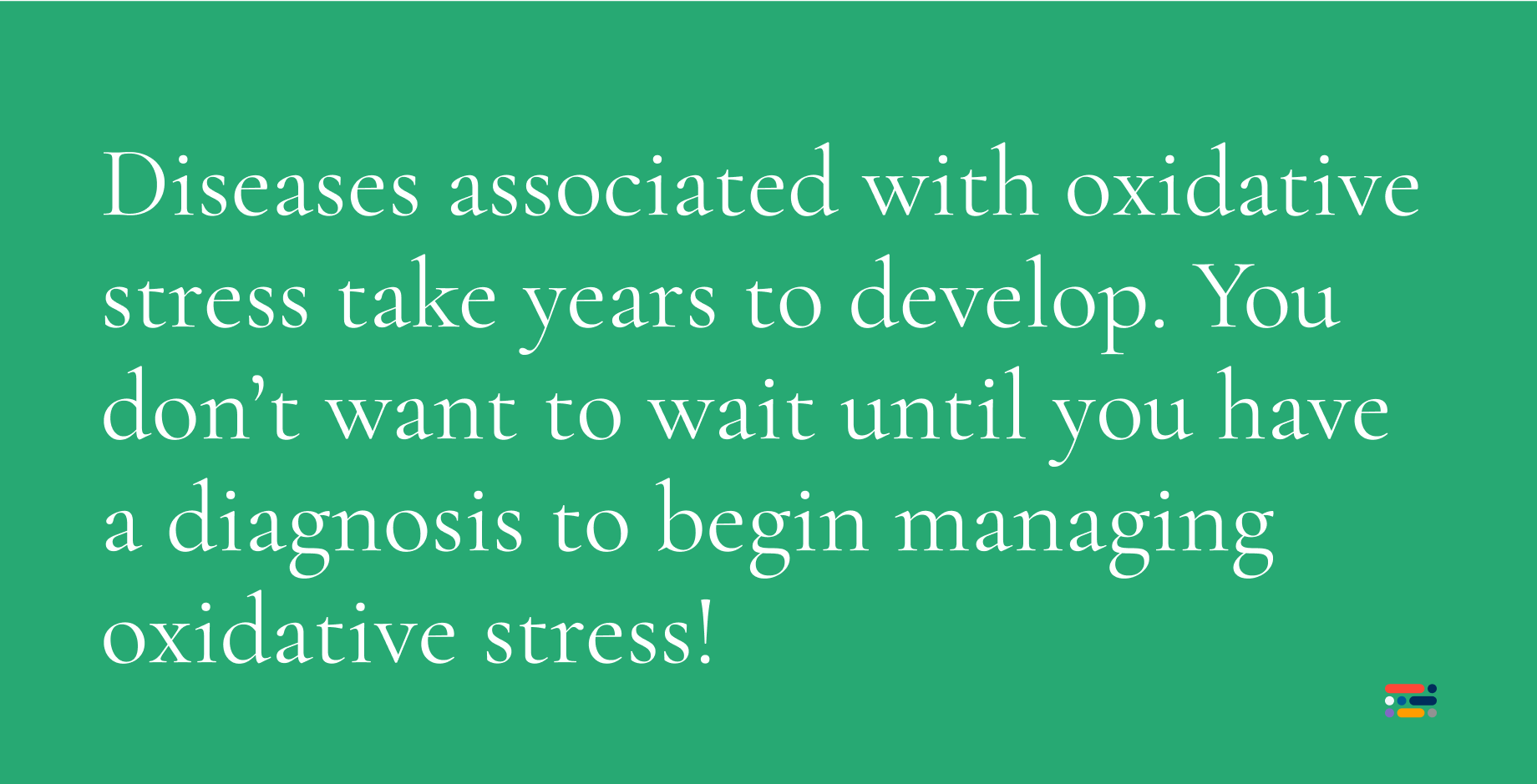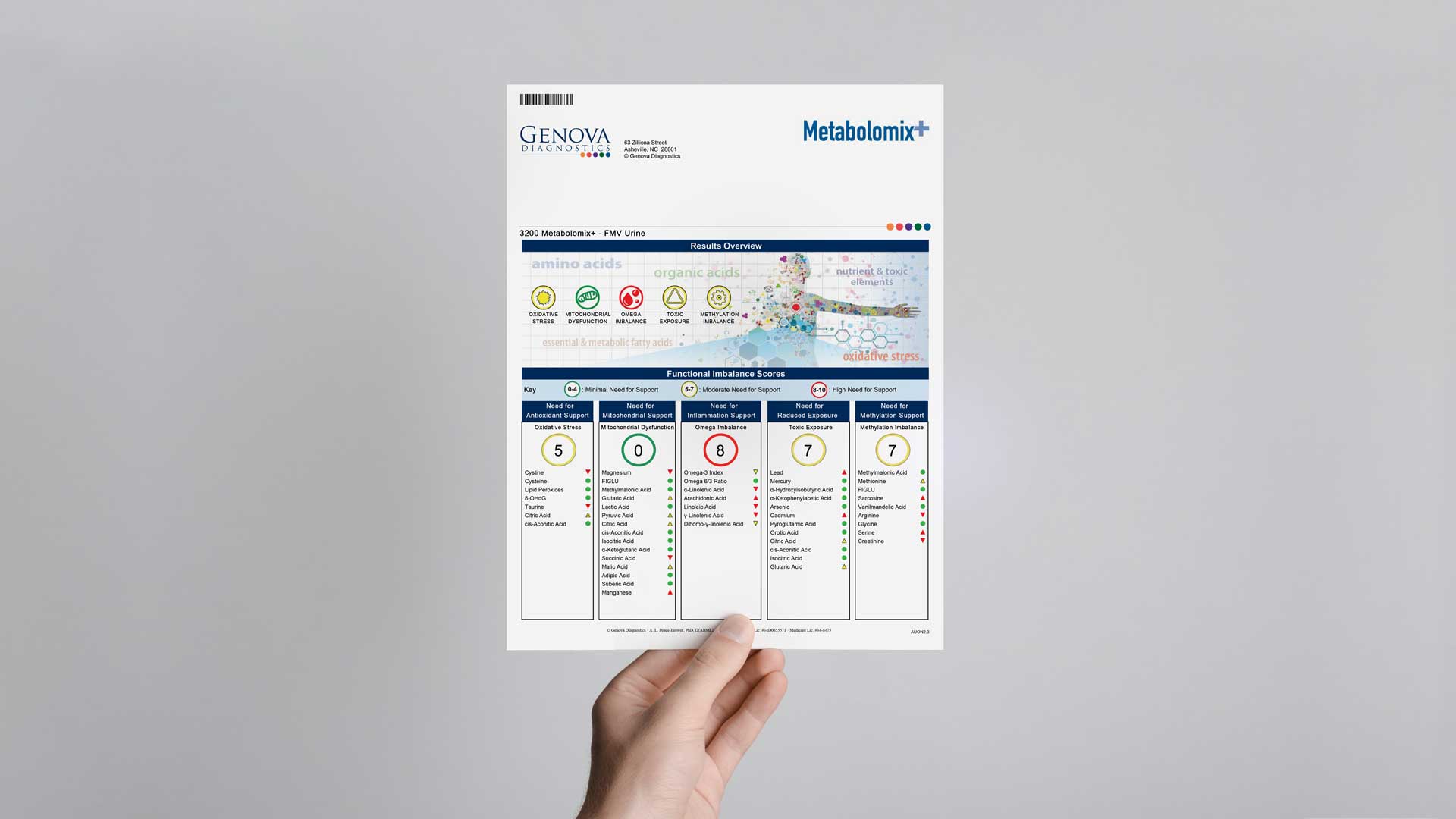We use cookies to enhance your browsing experience and analyze the performance of our website. By clicking Continue, you agree to the use of cookies. For more information, please see our Privacy Policy or update your Cookie Preferences.


Did you know that your body is constantly performing a behind-the-scenes balancing act? Oxidative stress is a phenomenon that plays a significant role in the development of various chronic diseases and aging processes. Fortunately, nature equips us with a defense mechanism through antioxidants that help combat oxidative stress's harmful effects. Understanding oxidative stress, the role of antioxidants like glutathione, and testing for markers like lipid peroxides can guide personalized health strategies.
Think about a rusty bicycle. When metal reacts with oxygen and water, it forms iron oxide, also known as rust. Our bodies can also 'rust' over time. In the same way rust on a bicycle can weaken the metal and cause it to deteriorate, a destructive process called oxidative stress can undermine your cells and tissues. Harmful reactive molecules called free radicals can form in your body from many sources, including normal metabolism and toxic environmental factors. This is called oxidative stress - and it's normal. The body is naturally well-equipped to handle oxidative stress and counter the attack.
Oxidative stress and free radicals are generated by:
The problem is these free radical molecules can go unchecked, build up, and cause imbalances that are harmful and contribute to aging and chronic diseases. But don't worry, we have a secret weapon to protect us - antioxidants!
To combat oxidative stress, your body makes antioxidants that neutralize free radicals, repair damaged cells and tissues, and promote longevity.3 You also get antioxidants through food.
Antioxidant examples include:
Glutathione is the body's most potent antioxidant designed to metabolize free radicals and detoxify the body. Glutathione deficiency has been implicated in many diseases including cancer, liver disease, and neurological problems like Parkinson's disease. Glutathione is composed of amino acids, which are the building blocks of protein. So, eating enough protein can help support optimal levels. One amino acid in particular, N-acetyl cysteine (NAC), is commonly prescribed by healthcare practitioners.4
The problem is that you can't see oxidative stress since it happens on a microscopic level in your cells. There might be evidence that oxidative damage has occurred if you have a chronic disease like heart disease, diabetes, obesity, or cancer. But those diseases didn't form overnight. The diseases associated with oxidative stress take years to develop, which means oxidative stress has been a problem for a long time. You don't want to wait until you have a diagnosis to begin managing oxidative stress!

If you can't see it happening, how do you know if you are striking the right balance between free radical damage and antioxidant protection?
Consider oxidative stress testing. A comprehensive nutritional test measures oxidative stress markers such as:

There are several steps you can take to ensure your body is protected from the destructive effects of oxidative stress:
Oxidative stress is a normal process that occurs in your body from the time you are conceived until the day you die. Your challenge is to make sure your body is equipped to protect against the damaging effects and that requires making healthy daily choices. If you're unsure of your current strategy, consider testing to see if you need additional support and visit with a practitioner who's on board with helping you fight your free radicals.
Check out our oxidative stress episode of The Lab Report podcast: "Patti and Michael Deal with Oxidative Stress".
This article is meant for educational purposes only and is not meant to be misconstrued as medical diagnosis or treatment advice.